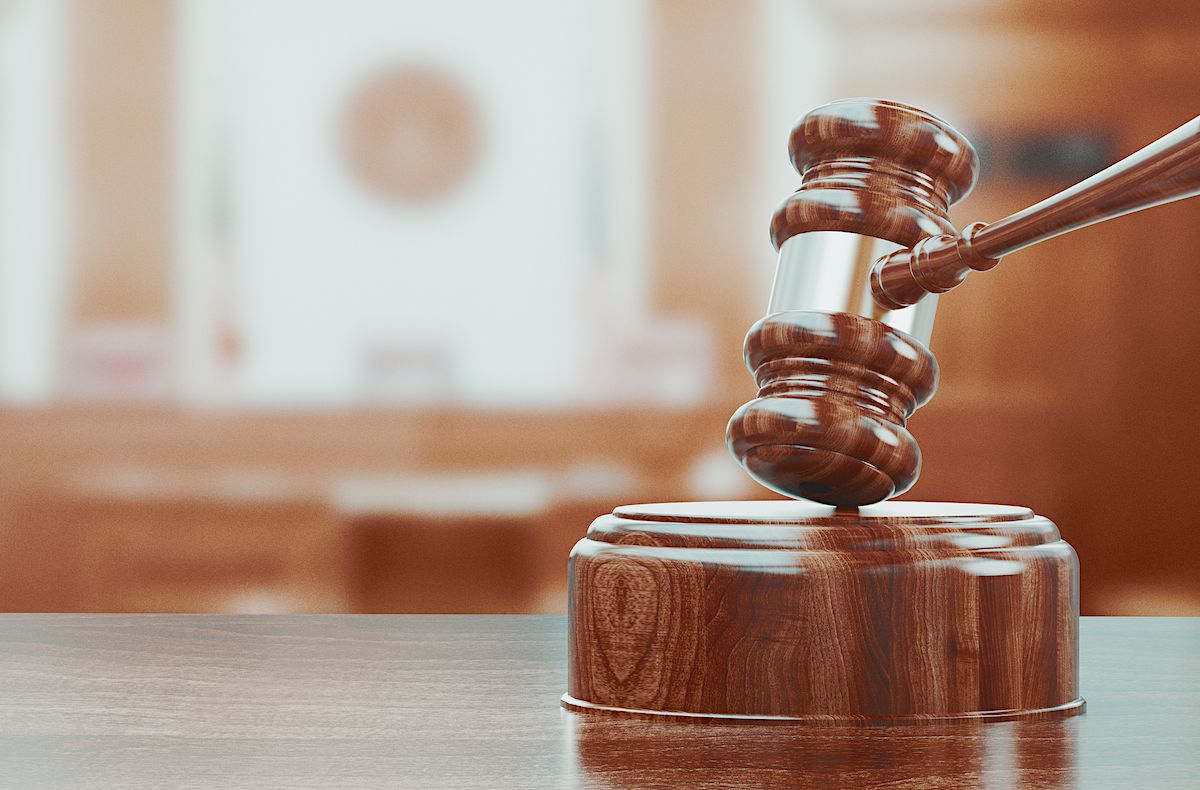
(GA Recorder) — Wednesday’s return of in-person hearings before the Georgia Supreme Court featured back and forth exchanges with justices and attorneys separated by mere feet instead of communicating from miles away through computer screens.
The return of oral arguments inside the downtown Atlanta courthouse for the first time in 15 months went off without evidence a global pandemic had shut proceedings down as attorneys from two cases wrapped up their arguments before the clock struck noon. Inside the courtroom, several dozen onlookers gathered in the gallery to watch the proceedings play out before the nine vaccinated justices.
The first two cases on the Supreme Court docket after the pandemic restart were more typical of the gradual grind of justice than sensational setting of precedent.
The court restarted with an attempt to overturn the state appeals court’s reversal of a Cherokee County court judge’s decision to toss out a 2016 drunk driving charge against Sara E. Walker after the statute of limitations ended.
Walker’s attorney D. Benjamin Sessions said the case ended after the arresting officer, toxicology expert, and other witnesses failed to show up for the misdemeanor trial.
Meanwhile, prosecutors argue that when the judge dismissed the case with prejudice, it unfairly prevented the state from bringing charges later.
“I do believe that the statute of limitations bars the prosecution or the reactivation of this case later on,” Sessions said.
Next, an attorney for Lil’che Stafford appealed his 2018 felony murder conviction for the death of Fulton County’s Jose Greer, who fell from his apartment’s balcony while trying to get away from a group of burglars.
Stafford’s attorney Brian Steel argued that the evidence of Stafford’s previous conviction should not have been allowed during the trial. Steel said Stafford also had ineffective counsel, which included a failure to challenge hearsay testimony.
But Justice David Nahmias countered that argument.
“There are lots of exceptions that could apply: co-conspirator hearsay initiated by the defendant, statements against penal, present sense impression if somebody says, ‘hey that’s the stuff you just stole,’” he said.
The nearly two-hour session ended after the retiring Chief Justice Harold Melton commended Steel for the way he’s conducted himself before the court over the years.
Since closing off the courtroom in March 2020, the Supreme Court kept cases moving by hosting virtual proceedings. But with the widespread availability of vaccines and declining infection rates, the state’s highest court — and many lower courts across Georgia — are back hosting in-person hearings.
The first day for hearings inside the Nathan Deal Judicial Center courtroom in more than a year was also the final day on the bench for Melton after serving 16 years with the court.
He opened Wednesday crediting the staff for keeping the court’s business in order during the previous 15 months.
“I do want to thank our IT staff and our support staff for all the work they’ve done to enable us to operate during the pandemic,” Melton said. “This is our first argument back in person, and they made it seamless, but it is good to be back in the courtroom.”
There were some reminders Wednesday of how the pandemic has shifted the ways Georgia’s courts operate.
Signs posted at the entrances into the judicial center and courtrooms asked people to wear masks if they were not fully vaccinated.
Crews are also frequently cleaning common areas, and hand sanitizer dispensers are available throughout.
The new state-of-the-art that opened in 2019 and offers ventilation and lighting systems that court officials say reduces the spread of bacteria and other toxins.







